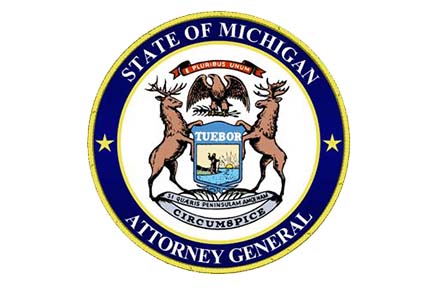Governor Whitmer Makes Appointments to Boards and Commissions
LANSING, Mich. — Today, Governor Gretchen Whitmer announced appointments to the following boards and commissions: The Michigan Gaming Control Board; Michigan Travel Commission; Michigan Commission on Agriculture and Rural Development; Michigan Truck Safety Commission; Farm Produce Insurance Authority; State Historic Preservation Board; Black Leadership Advisory Council; Michigan Council for Rehabilitation Services; and the Public Health Advisory Council.
Michigan Gaming Control Board
Deidre Lambert-Bounds, of Troy, is the president and co-owner of Ignite Social Media, LLC, and the chief operating officer and co-owner of its sister company, Carusele Media. Lambert-Bounds serves on the executive boards of the Sphinx Organization, International Women’s Forum, and the Michigan Partnership for Equity and Opportunity. Bounds attended Wayne State University. Deidre Lambert-Bounds is reappointed to represent Independents for a term commencing January 9, 2025, and expiring December 31, 2028.
The Michigan Gaming Control Board ensures the conduct of fair and honest gaming to protect the interests of the citizens of the state of Michigan. The Board provides Detroit commercial casinos gaming operations licensing and regulation, licenses and regulates online gaming and sports betting operators, platform providers and suppliers, regulates pari-mutuel horse racing and casino-style charitable gaming, and audits tribal gaming compact agreement compliance.
This appointment is subject to the advice and consent of the Senate.
Michigan Travel Commission
Hayley Ennest, of Kalamazoo, is the owner of 13 Cookies, a destination bakery in Portage. Ennest previously worked as a technical assistant for the Kalamazoo RESA culinary arts career training program and has 25 years of experience in the hospitality industry. Hayley Ennest is appointed to represent an individual with experience in travel, tourism, and recreation industry or an associated field for a term commencing January 9, 2025, and expiring August 20, 2026. Ennest succeeds L. Garnet Lewis, who has resigned.
The Travel Commission was established to promote, maintain, and develop the orderly growth of the Michigan travel product. The Commission assists the Michigan Travel Bureau with the development of a comprehensive, long-range master plan; annually assesses the activities and accomplishments of the Michigan travel bureau; and works to the maximum extent practicable with those private associations, nonprofit corporations, organizations, or other private entities which promote tourism in this state.
This appointment is subject to the advice and consent of the Senate.
Michigan Commission on Agriculture and Rural Development
Andrew Chae, of Detroit, is the owner of Fisheye Farms, an urban farm that produces diverse specialty crops including mesclun mixes, eggplant, cabbage, and tomatoes. Chae holds a Bachelor of Arts in political science and a Bachelor of Arts in environmental studies from DePaul University. Andrew Chae is reappointed to represent Democrats for a term commencing January 9, 2025, and expiring December 31, 2028.
The Michigan Commission of Agriculture and Rural Development provides oversight and executive direction for the programs of the Michigan Department of Agriculture and Rural Development and approves the rules and regulations that the department promulgates.
This appointment is subject to the advice and consent of the Senate.
Michigan Truck Safety Commission
Darrell “Toby” Archambault, of Gaylord, currently works in development and compliance for Dean Transportation. Previously, Archambault served in the Michigan State Police’s Commercial Vehicle Enforcement Division for 31 years, retiring as a motor carrier Lieutenant. Archambault holds an associate’s degree in law enforcement from Lansing Community College. Darrell Archambault is appointed to represent the general public for a term commencing January 9, 2025, and expiring August 4, 2025. Archambault succeeds Samer Koujane, who has resigned.
The Michigan Truck Safety Commission (MTSC) is the nation’s only organization that is dedicated to commercial truck driver education and training and is supported solely by the industry it serves. The Commission is committed to enhancing truck and truck driver safety by providing truck driver education and training, heightening all drivers’ awareness of the operational characteristics and limitations of trucks, initiating data collection and research, and supporting enforcement of motor carrier safety laws.
This appointment is subject to the advice and consent of the Senate.
Farm Produce Insurance Authority
Dan Keenan, of Merrill, is a fifth-generation farmer on his family farm in west Saginaw County. Keenan holds a Bachelor of Science in agribusiness management from Michigan State University. Dan Keenan is appointed to represent producers from the largest Michigan organization representing general farm interests in Michigan for a term commencing January 9, 2025, and expiring June 20, 2027. Keenan succeeds William Wilson, whose term has expired.
The Michigan Farm Produce Insurance Authority is a ten-member board representing farmers, the grain industry, and banking interests. The Authority has the responsibility of establishing, administering, and promoting the Farm Produce Insurance Fund.
This appointment is subject to the advice and consent of the Senate.
State Historic Preservation Board
Dr. Ann Scott, of Midland, is a principal and environmental planning program manager with Terracon, a national environmental and scientific consulting firm. Dr. Scott brings more than 25 years of professional experience and also serves as an authorized project reviewer with Terracon, a role that ensures quality control for surveys, reports, and data generated by the firm’s projects. Dr. Scott holds a Bachelor of Science in anthropology from Central Michigan University, a Master of Arts in anthropology from Northern Illinois University, and a Doctor of Philosophy in Latin American studies (archeology) from the University of Texas at Austin. Dr. Ann Scott is appointed as a member meeting the Secretary’s historic preservation qualifications standards for prehistoric archeology or historic archeology for a term commencing January 9, 2025, and expiring December 31, 2028. Dr. Scott succeeds Dean Anderson, whose term has expired.
Dr. Matthew Daley, of Jenison, is a professor of history at Grand Valley State University, specializing in the history of Michigan and the Great Lakes. Dr. Daley holds a Bachelor of Arts in history from the University of Detroit-Mercy, a Master of Arts in history from Wayne State University, and a Doctor of Philosophy in history from Bowling Green State University. Dr. Matthew Daley is reappointed as a member meeting the Secretary’s historic preservation qualifications standards for history for a term commencing January 9, 2025, and expiring December 31, 2028.
Dr. Krysta Ryzewski, of Ypsilanti, is a professor of anthropology at Wayne State University and currently serves as Chair of the WSU Department of Anthropology. Dr. Ryzewski holds a Bachelor of Arts in archaeology from Boston University, a Master of Philosophy in archaeology and heritage management from the University of Cambridge, and a Doctor of Philosophy in anthropology from Brown University. Dr. Krysta Ryzewski is reappointed as a member meeting the Secretary’s historic preservation qualifications standards for prehistoric archeology or historic archeology for a term commencing January 9, 2025, and expiring December 31, 2028. Dr. Ryzewski is also reappointed as Chair of the State Historic Preservation Review Board for a term commencing January 9, 2025, and expiring at the pleasure of the Governor.
The Michigan State Historic Preservation Review Board reviews and approves each national register nomination prior to submission to the Keeper of the National Register; has appellate jurisdiction under the Local Historic Districts Act, as amended; and provides general advice, guidance and professional recommendations to the State Historic Preservation Office on matters related to historic preservation.
These appointments are not subject to the advice and consent of the Senate.
Black Leadership Advisory Council
Justin Onwenu, of Detroit, is the City of Detroit’s first director of entrepreneurship and economic opportunity. Previously, Onwenu served as organizing director for One Fair Wage, as a law clerk for United Auto Workers International, and as a community organizer for Sierra Club. Onwenu holds a bachelor’s degree in international health and policy from Rice University and a Juris Doctorate from Columbia Law School, where e served as student body president. Justin Onwenu is appointed as a member representing Black leadership in health, wellness, or the environment, and as a member between the ages of 18-35, for a term commencing January 9, 2025, and expiring December 31, 2027. Justin Onwenu succeeds Michele Samuels, who has resigned.
Christopher Burtley, of Flint, is an adjunct professor of law at the University of Michigan Law School and the vice president of strategy and chief of staff to the chief executive officer/co-chairman at D.C. United. Burtley earned a Bachelor of Arts in international relations from Michigan State University’s James Madison College and a Juris Doctorate from the University of Michigan Law School. Christopher Burtley is reappointed as a member representing Black leadership in law for a term commencing January 9, 2025, and expiring December 31, 2027.
The Black Leadership Advisory Council was created by Governor Whitmer’s Executive Order 2020-163 as an advisory body in the Department of Labor and Economic Opportunity. The Council acts in an advisory capacity to the governor and develops, reviews, and recommends policies and actions designed to eradicate and prevent discrimination and racial inequity in Michigan.
These appointments are not subject to the advice and consent of the Senate.
Michigan Council for Rehabilitation Services
Margi Williams, of Mattawan, is a managing partner at Diversified Career Services, LLC. Williams holds an Associate of Applied Science in accounting from State University of New York, a Bachelor of Business Administration from Baker College, and a Master of Science in industrial and organizational psychology from Baker College. Margi Williams is reappointed as a member who represents business, industry, or labor for a term commencing January 9, 2025, and expiring December 31, 2027.
Kelsey Hockaday, of Midland, is the associate director at the Disability Network of Mid-Michigan. Hockaday holds a Bachelor of Science in history from Northern Michigan University. Kelsey Hockaday is reappointed as a member who represents business, industry, or labor for a term commencing January 9, 2025, and expiring December 31, 2027.
Jonathan Bischoff, of Lake Orion, is the chief operating officer at New Horizons Rehabilitation Services, Inc. Bischoff was previously a vocational rehabilitation specialist for Michigan Rehabilitation Services and is also a certified rehabilitation counselor and a licensed professional counselor. Bischoff holds an associate’s degree in accounting from Baker College, a Bachelor of Arts in journalism from Michigan State University, and a Master of Arts in rehabilitation counseling from Michigan State University. Jonathan Bischoff is appointed as a member who represents community rehabilitation program service providers for a term commencing January 9, 2025, and expiring December 31, 2026. Bischoff succeeds Brent Mikulski, who resigned.
Shana Washington, of Lansing, is the national executive lead for workforce development and talent supply innovation for Trinity Health. Washington holds a Bachelor of Science in business administration with a concentration in human resources from Cornerstone University. Shana Washington is reappointed as a member who represents Michigan Workforce Development Board businesses for a term commencing January 9, 2025, and expiring December 31, 2027.
The Michigan Council for Rehabilitation Services reviews, analyzes, and advises Michigan’s rehabilitation programs and services, and advises the department director and Governor. The Council works in partnership with Michigan Rehabilitation Services (MRS) and the Michigan Department of Licensing and Regulatory Affairs’ Bureau of Services for Blind Persons (LEO-BSBP).
These appointments are not subject to the advice and consent of the Senate.
Public Health Advisory Council
Nicholas Derusha, of Newberry, is the director and health officer of the Luce-Mackinac-Alger-Schoolcraft District Health Department. Derusha is also a member of the Michigan Center for Rural Health Board of Directors, a member of the Northern Health Foundation Board of Directors, and the treasurer for the Helen Newberry Joy Hospital. Derusha received his Bachelor of Science in environmental health and safety management from Ferris State University and his Master of Public Administration from Northern Michigan University. Nicholas Derusha is reappointed as a member who represents local public health officials for a term commencing January 9, 2025, and expiring November 1, 2028.
Jayne DeBoer-Rowse is registered nurse at the Oakland County Health Department. DeBoer-Rowse earned an Associate of Applied Science in nursing, criminal justice, and law enforcement from Oakland Community College and a Bachelor of Science in nursing from the University of Michigan. Jayne DeBoer-Rowse is reappointed as a member to represent a registered nurse for the Public Health Advisory Council for a term commencing January 9, 2025, and expiring November 1, 2028.
The Public Health Advisory Council was created within the Michigan Department of Health and Human Services at the recommendation of the Public Health Advisory Commission. The Council will develop an action plan for implementing the recommendations of the Commission and is tasked with providing advice about emerging issues in public health, monitoring the effectiveness of Michigan’s public health response system, and reviewing multiagency efforts to support collaboration and a unified approach on public health responses.
These appointments are not subject to the advice and consent of the Senate.












